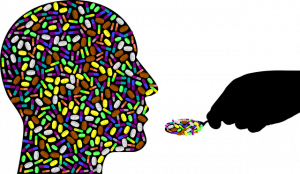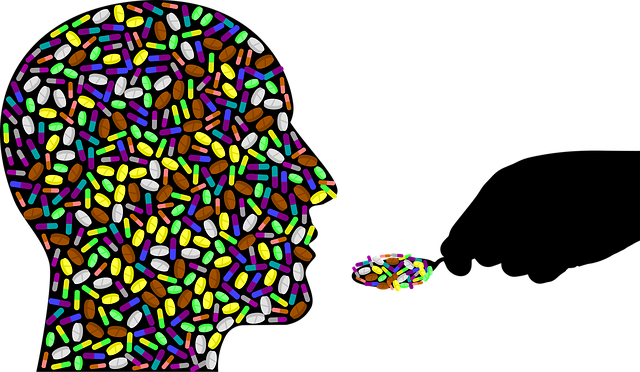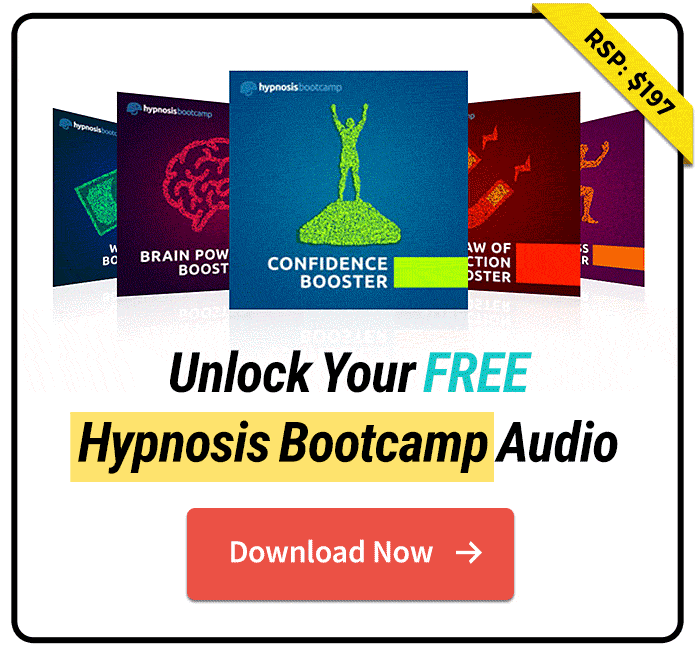I am familiar with the difficulties associated with overcoming substance abuse and behavioural addictions. It requires great courage and resolve to seek assistance and embark on the road to recovery.
Although there are numerous resources available for those battling addiction, it can be challenging to know where to begin.
This article will discuss advanced techniques for overcoming addiction that go beyond therapy and support groups. These suggestions are intended to assist you in escaping the cycle of addiction and living a fulfilling life in recovery.
These guidelines can help you achieve long-term sobriety and regain control of your life, regardless of the type of addictive behaviour you are battling.
Identifying Triggers And Developing Coping Strategies
 Numerous individuals who struggle with substance abuse and behavioural addictions have been my clients. Identifying triggers and developing coping strategies to deal with them is a crucial step in the process of overcoming addiction.
Numerous individuals who struggle with substance abuse and behavioural addictions have been my clients. Identifying triggers and developing coping strategies to deal with them is a crucial step in the process of overcoming addiction.
Techniques of coping are essential for those who wish to overcome addiction. These techniques assist individuals in coping with difficult emotions or situations without resorting to addictive substances or behaviours. Mindfulness practises, exercise, talking to a supportive companion or family member, and engaging in creative activities such as art and music are examples of coping mechanisms.
Identifying triggers is another crucial aspect of overcoming addiction. Triggers are situations, people, or emotions that can contribute to drug use or other addictive behaviours.
By identifying their triggers, individuals can devise coping mechanisms to manage them and prevent relapse. In the following section, we will discuss some practical methods for identifying triggers and developing effective coping strategies.
Mindfulness And Meditation Practise
Mindfulness and meditation are effective methods for those battling addiction.
You can learn to be present in the moment and to observe your thoughts and emotions without judgement by practising mindfulness.
This can help you become more aware of your triggers and appetites, allowing you to respond more healthfully to them.
Through mindful respiration, one can practise mindfulness in a straightforward manner.
Take a few minutes each day to concentrate on your breath, noticing the sensation of air entering and leaving your body.
If your mind wanders, gently and without judgement, bring it back to your respiration.
You may also find guided meditations or mindfulness apps useful, as they can provide structure and support as you cultivate your practise.
There are many meditation retreats available for those seeking a deeper understanding of meditation and mindfulness.
These comprehensive experiences enable participants to disconnect from their daily lives and concentrate solely on advancing their practise.
It is essential to note, however, that these retreats can be rigorous and may not be suitable for everyone.
Before beginning any new treatment or self-improvement programme, it is always a good idea to consult with a therapist or counsellor.
Keep in mind that mindfulness and meditation are only one of the many tools available for overcoming addiction.
In order to attain long-term sobriety, it is essential to seek comprehensive treatment that addresses the physical, emotional, psychological, and social aspects of addiction.
Developing A Support System
It is commonly stated that no person is an island. This statement resonates with those battling addiction, as they require a support system to surmount their obstacles. Having the proper support system can make all the difference in a person’s recovery journey.
Particularly, peer support has been shown to be effective in assisting individuals to overcome substance abuse and behavioural addictions. Peer support refers to the assistance and direction provided by individuals who have had similar experiences. These individuals can provide compassion, encouragement, and actionable advice on how to manage appetites and triggers. Peer support groups such as Alcoholics Anonymous (AA) and Narcotics Anonymous (NA) offer individuals struggling with addiction a judgment-free environment in which to share their experiences.
In addition to peer support groups, online resources play a crucial role in the development of a support network for individuals overcoming addiction. Through online forums, journals, and social media platforms, individuals can connect with others experiencing similar difficulties. Individuals are able to share their experiences anonymously or publicly, and receive feedback from others who understand their situation.
When you feel weak, having someone who understands your struggles can give you fortitude. When feeling overburdened, it is reassuring to know that you are not alone. Mental health can be improved by belonging to a community that supports your recovery journey.
As part of their recovery strategy, I encourage my clients to develop a solid support system. Peer support groups and online resources are invaluable resources for those attempting to overcome addiction. Individuals can gain the fortitude and resiliency necessary to break free from the bonds of addiction by connecting with others who have endured comparable circumstances.
Remember that asking for assistance is not a sign of weakness; it takes courage and fortitude to seek help to overcome addiction.
Seeking Expert Advice And Treatment Options
As you construct your support system, keep in mind that it may not be sufficient to overcome addiction on your own. Seeking professional assistance and treatment options can provide the additional support necessary to overcome substance abuse and behavioural addictions.
In addiction treatment, holistic approaches are becoming increasingly popular. These methods emphasise treating the whole person – mind, body, and spirit – as opposed to the addiction alone. Meditation, yoga, acupuncture, and massage therapy are examples of holistic modalities.
You can develop a greater sense of self-awareness and inner serenity by incorporating such practises into your treatment plan.
Alternative treatments for addiction may also be effective. Art therapy, music therapy, and equine therapy are examples of these modalities. Alternative therapies can help you investigate your emotions and express yourself in new ways in a safe environment. Additionally, they can provide a much-needed respite from conventional talk therapy and group sessions.
Keep in mind that there is no universal method for overcoming addiction. Finding the treatment options that work best for you as an individual is essential. With the correct combination of support, holistic approaches, and alternative therapies, it is possible to permanently overcome substance abuse and behavioural addictions.
Maintaining A Healthy Routine And Lifestyle
How can one maintain a healthful routine and lifestyle while overcoming addiction? It is a common concern among those in recovery. In reality, however, developing healthy practises and effective time management techniques can be crucial for maintaining sobriety and avoiding relapse.
The incorporation of daily physical activity is essential for maintaining a wholesome lifestyle. It has been shown that exercise not only improves physical health, but also reduces tension and anxiety levels. Find an enjoyable activity, such as running, yoga, or weightlifting, and incorporate it into your daily routine.
The importance of appropriate nutrition in maintaining a healthy lifestyle is likewise crucial. A balanced diet can help stabilise mood fluctuations and reduce cravings for unhealthy foods and substances. Be sure to consume an abundance of fruits, vegetables, lean proteins, and whole cereals. Avoid processed foods, sweetened beverages, and excessive caffeine consumption, as all of these can have a negative effect on your health.
In addition to aiding in the maintenance of a healthy lifestyle, effective time management techniques can also contribute to their implementation. Create a schedule with daily objectives and prioritise duties by importance. This will aid in avoiding procrastination and feelings of being overwhelmed, both of which can contribute to relapse. In addition, schedule time for self-care activities such as meditation and journaling, which can reduce tension and promote emotional healing.
Remember that developing healthy practises and time management strategies takes time and effort, but the benefits are well worth the investment. You will be better equipped to maintain long-term sobriety if you prioritise your physical health through exercise and appropriate nutrition and effectively manage your time through goal setting and self-care activities.
Can addiction be cured completely, or is it a lifelong battle?
I am frequently asked whether addiction can be wholly cured or whether it is a lifelong battle.
The reality is that addiction is a chronic disease, and while it can be effectively managed, relapse is always a possibility.
For this reason, those in the process of overcoming addiction must have a sustainable recovery plan. Long-term sobriety can be maintained through relapse prevention techniques such as identifying triggers, developing healthy coping mechanisms, and seeking support from loved ones.
It is essential to remember that recovery manifests differently for each individual and may require continual maintenance efforts.
How can I assist a loved one who is battling addiction without enabling them?
It can be difficult to know how to assist a loved one struggling with addiction without enabling their behaviour.
Using intervention techniques, such as gathering a group of close friends and family members to confront the individual about their addiction and encourage them to seek professional assistance, is an effective strategy.
It is also essential to establish healthy boundaries, in which you make it plain that you will not support their addiction financially or engage in their harmful behaviours.
As supporting a person with addiction can be emotionally taxing, I frequently advise pursuing support for yourself through therapy or support groups.
Are There Natural Remedies Or Alternative Therapies That Can Help With Recovering from Addiction?
Herbal supplements and meditation can be effective natural addiction recovery treatments. They can aid in reducing stress and anxiety, promoting relaxation, and enhancing overall health.
Art therapy and exercise regimens are additional alternative therapies that can assist in the recovery from addiction. Art therapy promotes self-expression, creativity, and emotional healing, whereas exercise routines can increase confidence, improve physical health, and reduce cravings.
I always suggest combining these natural remedies and alternative therapies with conventional treatment methods for optimal recovery outcomes.
How Can I Overcome My Fear Of Relapse And Maintain My Sobriety Over Time?
I frequently hear from clients that they dread relapse and find it challenging to maintain long-term sobriety. Effective coping mechanisms and accountability partners can aid in overcoming this dread and remaining on the path to recovery.
It is essential to investigate the validity of any theories or strategies you encounter, as what works for one individual may not work for another. Discover what works best for you and adhere to it.
Maintaining a commitment to your recovery, whether through therapy, support groups, or a combination of various strategies, is essential for achieving long-term sobriety.
Is It Necessary To End All Relationships With Individuals Or Environments That Trigger Addictive Behaviours?
Identifying triggers is a crucial stage in the process of overcoming addiction. It is essential to identify people, places, and objects that can trigger addictive behaviour.
However, severing all ties with these triggers may not be necessary or even possible for all individuals. Instead, it is essential to develop a strong support network that can assist you in navigating these triggers and maintaining your sobriety.
This can include family, friends, therapists, and support groups who are committed to helping you remain on track and understand your struggles. The key is to find a balance between averting triggers whenever possible and developing the resilience and coping skills necessary to deal with them when they do occur.
I am familiar with the anxiety and difficulty associated with overcoming substance abuse and behavioural dependencies. It is essential to keep in mind that addiction may not have a cure, but it can be managed with the proper tools and support.
To assist a loved one who is battling addiction, it is essential to establish healthy boundaries and avoid enabling behaviours. Encourage them to seek professional assistance and provide emotional support without compromising your own health.
Natural remedies and alternative therapies can aid in the recovery from addiction, but they should always be used in conjunction with evidence-based treatments like therapy and medication-assisted treatment.
Overcoming the dread of relapse and maintaining long-term sobriety requires ongoing effort, including participation in support groups, self-care, and when necessary, professional assistance.
Although severing relationships or removing oneself from environments that provoke addictive behaviours may be necessary for some people, it is essential to explore all options and develop a personalised recovery plan.
Remember that recovery is a journey, but that overcoming addiction is possible with commitment and support.









